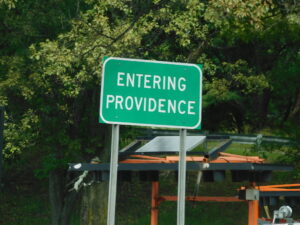by The Cowl Editor on October 1, 2020
Campus

Protecting Communal Welfare in the Age of Coronavirus
by Alyssa Cohen ’21
Opinion Staff
The COVID-19 pandemic has upended individual lives across the nation and world. It can be comforting to call this a collective hardship shared by many; however, it may be more productive to consider each struggle as a unique one, broadening the scope by which we analyze the diverse impacts of this health crisis.
One effect of the pandemic is the way in which the virus disproportionately impacts low-income communities. A Time Magazine analysis conducted back in April found that “low-income communities, particularly those with a high minority population,” have suffered disproportionately from the outbreak. Providence College is located in a community whose surrounding residents are largely Black and Latinx. An outbreak of COVID-19 for students likely means an outbreak in the surrounding communities that we frequent for resources that are inaccessible on campus.
More specifically, new findings from the New York University Grossman School of Medicine examined “the interplay between race and ethnicity and income on COVID-19 cases and related deaths in 10 major U.S. cities.”
The study determined that within the “more-poverty counties” of these cities, “those with substantially non-white populations had an infection rate nearly eight times that of counties with substantially white populations” and died from COVID-19 at “nine times the rate as those living in predominantly white counties.” Dr. Ogedegbe, professor of medicine and population health, at NYU Langone, hypothesizes these disparities to be byproducts of “structural racism.”
However, the effect of COVID-19 on low-income areas does not end at increased rates of infection. Those of lower socioeconomic status have been financially devastated by the COVID-19 outbreak, not to mention those who experienced conditions of poverty prior to the pandemic.
According to a survey conducted by the Urban Institute from March 25 to April 10, about one-third of all adults in the United States “reported that their families could not pay the rent, mortgage, or utility bills, were food insecure, or went without medical care because of the cost during the last 30 days,” and “two-thirds, or about 68.6%, of these adults had family incomes below the federal poverty level.”
This study also found Black and Latinx communities to be disproportionately affected by economic hardship, with “over 45% of [B]lack and Hispanic adults” reporting that their families experienced one or more of the aforementioned hardships within the respective 30-day period.
Such insight is particularly important to consider as PC students, given our on-campus and off-campus residents share a community with some of the lowest-income neighborhoods in the state of Rhode Island.
Take, for example, the neighboring community of Wanskuck, which is made up of 70.9% Black, Indigenous, People of Color. This is also a population in which 49.1% of residents rely on food stamps, and the median annual household income is $36,000.
Being so close to an impoverished, majority BIPOC community, PC students have the ability to worsen the state of the pandemic in a community that already lacks resources if they are not mindful of their actions. Accordingly, neglecting to acknowledge concerns voiced by members of the surrounding community only exemplifies the privilege we have being at a predominately white institution.
Therefore, it is our obligation, for the sake of the common good, and in order to be actively anti-racist, to protect the health and well-being of ourselves, our social circles, and our greater community. This entails taking the appropriate measures to reduce the spread of COVID-19 amongst both on and, especially, off-campus students, as well as an activism that exceeds merely curtailing the physical threat of the virus.
It is our shared responsibility to secure the welfare of people by listening to the specific requests of the communities most significantly impacted by the pandemic, as well as the negative effects of any social or economic structure of our American society at large.
Ultimately, in light of the November elections quickly approaching, our best means of advocating for the common good may be electing leaders on a local, state, and federal level who represent, reflect, and understand the needs of the most vulnerable members of the American public.
PC must unite as a campus, not only to get out and vote, but also to actively practice anti-racist behaviors via attention to quarantine protocols and regard for our neighbors. It is the only way we may maintain any sort of protection for the common good.